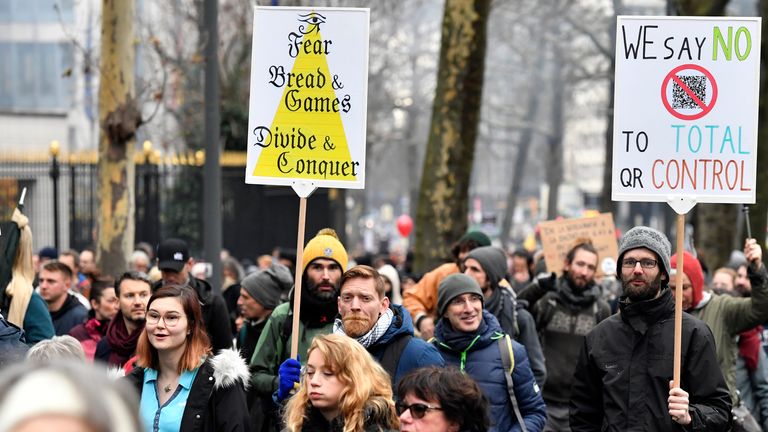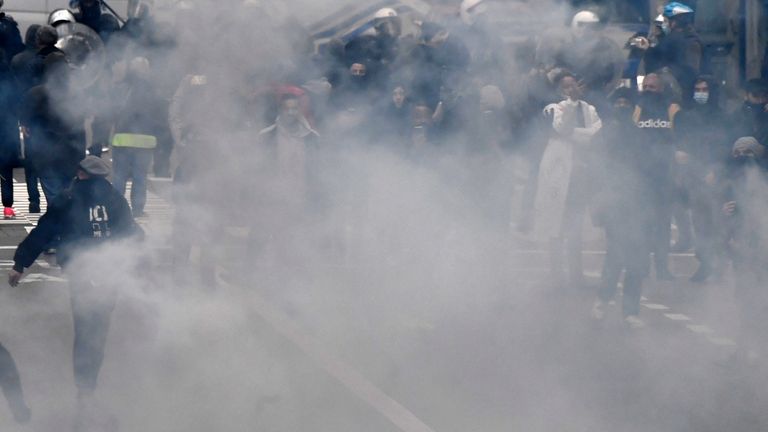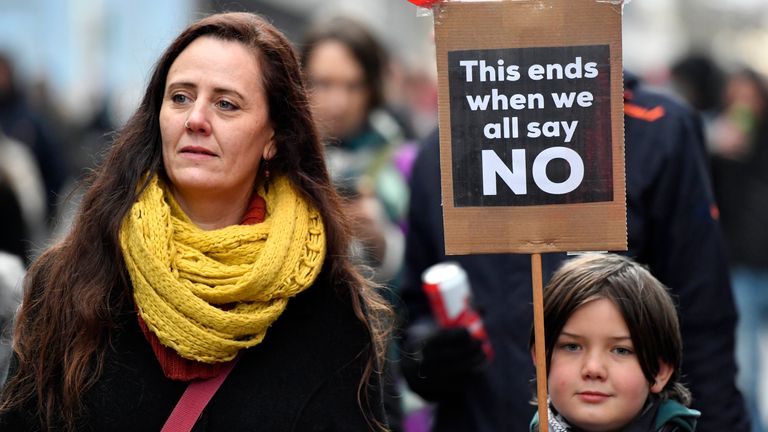Belgian police used tear gas and water cannon on protesters in Brussels to disperse crowds demonstrating against new coronavirus restrictions.
Thousands gathered to reject new measures introduced by the government on Friday, the third week in a row measures have been tightened, following a recent surge in COVID-19 cases.
Most of the protesters marched peacefully, with some carrying signs criticising COVID-19 vaccinations and against making jabs mandatory. Several were accompanied by children.
Shouting “Freedom! Freedom!” and carrying banners that said, “United for our freedom, rights and our children”, the protesters marched to the European Union headquarters.
The main crowd had mostly dispersed by the time around 100 protesters clashed with a barricade of police wearing riot gear protecting access to the European Commission.
According to the Associated Press news agency, after a brief stand-off, the protesters began to throw rubbish and other objects – including a bicycle – at police.
The protesters set off firecrackers and flares, while police used water cannon and tear gas to disperse the crowd. No injuries were immediately reported.
Belgium’s prime minister, Alexander De Croo, announced on Friday that day care centres and primary schools would close a week early for the Christmas holidays.
Mr De Croo added that children must wear masks from the age of six, and that indoor events would be limited to a maximum of 200 people.
Nightclubs have already been ordered to close, and the government told bars and restaurants to shut at 11pm for three weeks.
Despite speculation that closing times would be brought forward to 8pm, ministers decided against it.
According to the latest national health figures, cases in Belgium appear to have reached a plateau.
On a weekly average, 17,862 new daily cases were reported in Belgium, a rise of 6% compared to the previous week, reported the Associated Press.
Hospital admissions rose 4%, leaving more than 3,700 people in hospital with COVID, 821 of them in intensive care.
More than 27,000 people with the virus have died in Belgium, which has a population of 11 million, since the outbreak began last year.
















